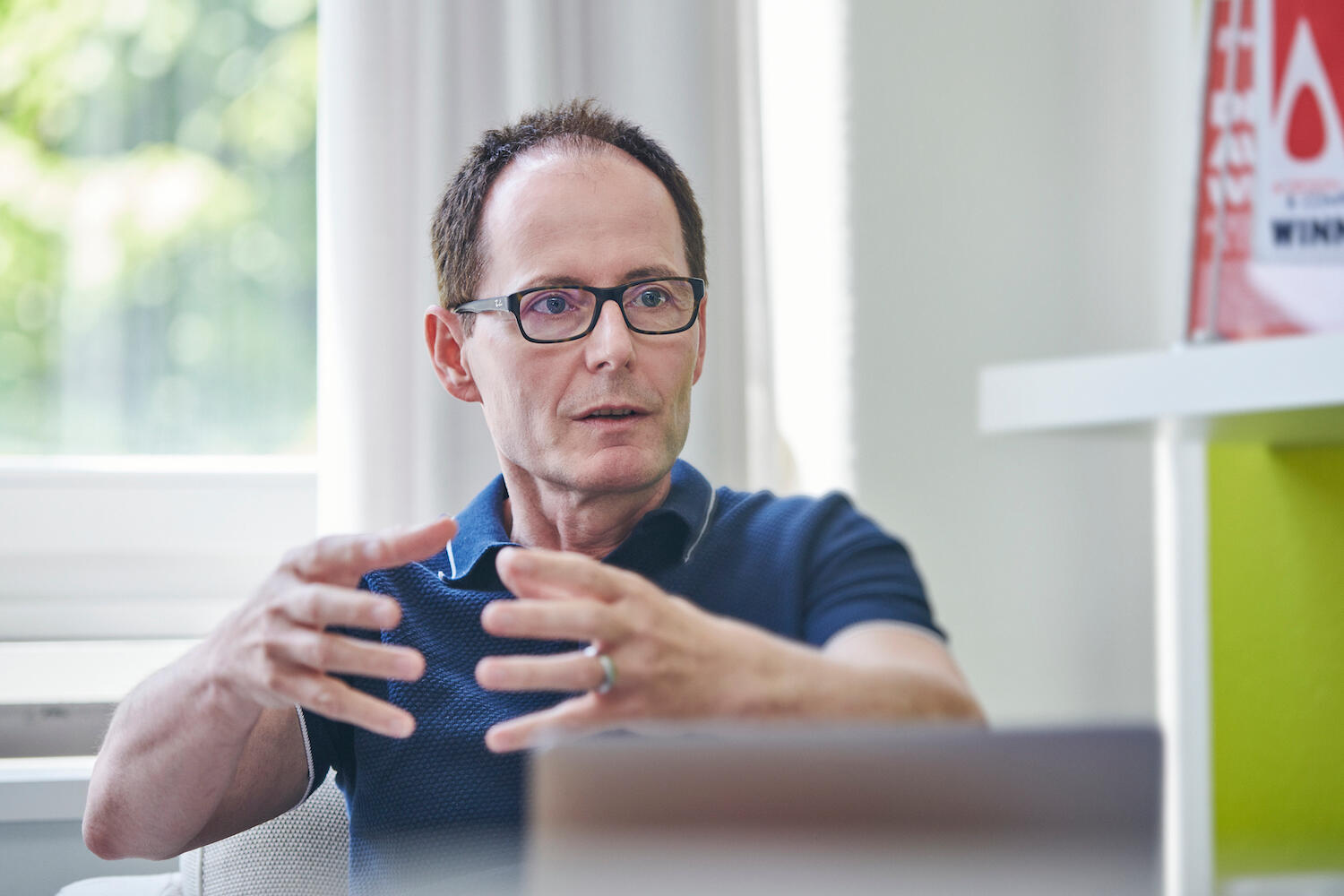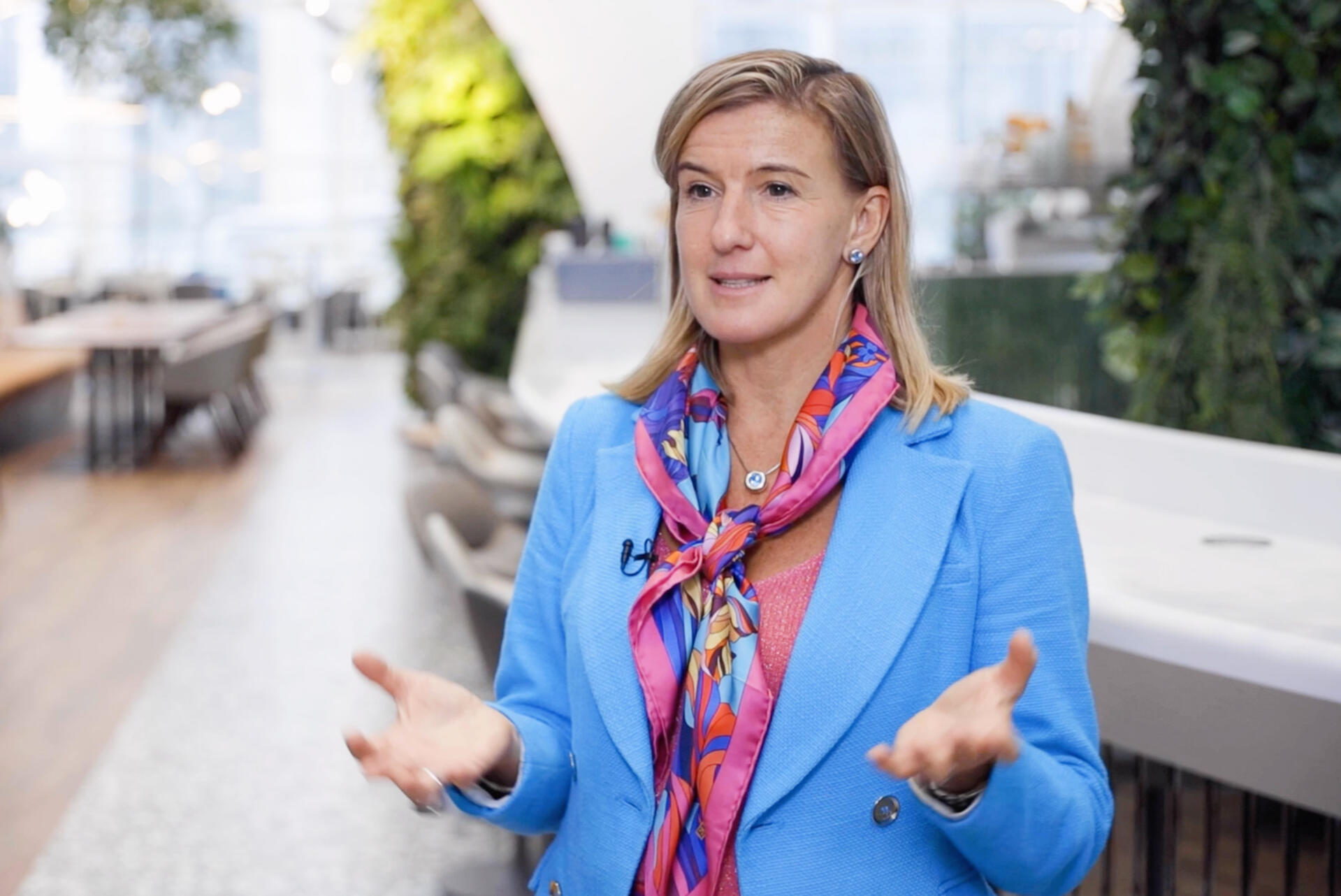Swiss Real Estate Association interview with Stefan Camenzind and Tanya Ruegg
In an interview with Swiss Real Estate Association (Schweizerischer Verband der Immobilienwirtschaft, SVIT) Stefan Camenzind and Tanya Ruegg explain what slides and table tennis have to do with modern office planning.
Workplaces should reflect our individuality.
» What are currently the biggest challenges when planning a work environment?
Stefan Camenzind: I think we are currently experiencing an important phase of change, as COVID-19 pandemic has shown the potential of remote working. Offices are now less of a place to go and more of a place to be.
Tanya Ruegg: Our most important task is to create areas that correspond as closely as possible to the needs of office users. That's why we research the employees’ workplace requirements; they themselves know best what are their workstyles and which work environment motivates them. The balancing act between the corporate identity of the company and the individuality of the employees is our greatest challenge.
» One consequence of the COVID-19 pandemic is a high proportion of people working from home office. What consequence does this have to the office planning?
Stefan Camenzind: We experience two customer groups. The first customer group has hardly invested in their workplace design in the last ten years. Their offices usually consist of workstations, meeting rooms and a coffee kitchen. This customer group is facing a major challenge and have now the opportunity to use the space freed up by working from home to expand the missing office infrastructure, such as zones for quiet work or communication hubs. The second customer group, whose concept was already based on exchange and interaction before the pandemic, is now fine-tuning. In summary, it can be said that the post-pandemic period is an opportunity for everyone.
» We are experiencing a merging of the analogue and digital worlds of work. What does that mean for you as an office planner?
Stefan Camenzind: We should ask ourselves what added value physical meetings offer us. If we're all sitting at a table and everyone is looking at a screen, it makes little sense. That's why we need meeting rooms that are deliberately set up for analogue meetings, where, for example, everyone can work together on pinboards or whiteboards. This question is not about right or wrong, but about finding scenarios that meet different needs.
» Offices increasingly resemble oases of well-being. Isn't that too much of a distraction?
Tanya Ruegg: Let’s take the Google Zurich offices as an example. When we designed this workplace, we were inspired by Google’s culture and employees, and a psychologist who led us to such questions as: “How do software developers think and feel?” “In which environments do they develop their creative potential?” As a result, we developed psychological profiles in which fun and games also played an important role. That's why there are slides and table tennis in the Google offices. Later, it was interesting that many of our clients from the banking and insurance sectors also wanted to build an office like Google. Our answer was always “no” to such enquiries, because to this day we always develop the concepts from the inner DNA of a company.
Stefan Camenzind: I would rather speak of oases of need. You said that you want to look at a white wall when writing, a customer from Vienna needs the panorama of an alpine hut for good ideas. Needs can be so different.
Read the full interview with Dietmar Knopf here.


